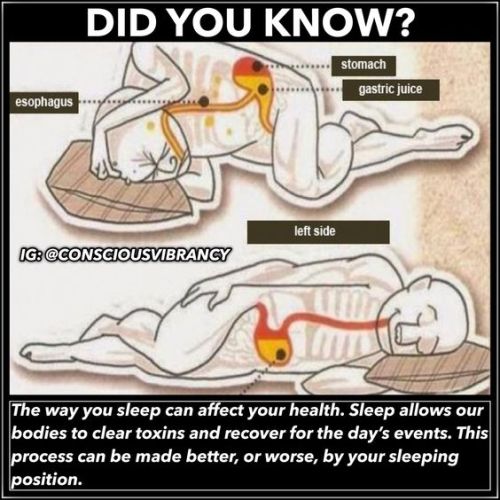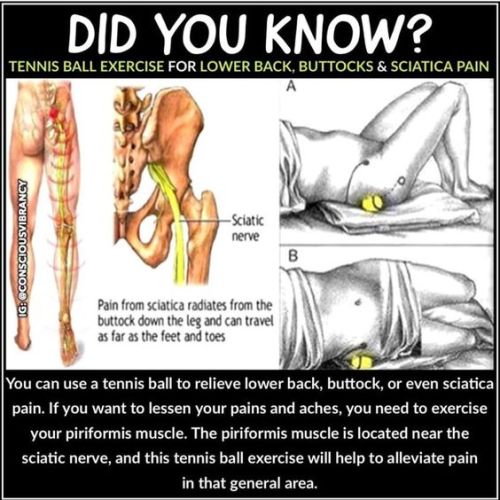Lokarprincipal - Conhecimento é Poder
More Posts from Lokarprincipal and Others

The Dance of a Thousand Hands.
Isso é tão verdade.
As a studyblr community can we stop pretending that we never
procrastinate
turn things in late
copy homework
cheat
get stressed
memorize information simply to pass a test
hate a subject/topic
dislike school
don’t do homework if we know it won’t be checked
don’t read the textbook
skip on making notes
don’t pay attention in class
get bad grades
skip schoolwork to hangout with friends
put school second
find ways around doing the homework
look for answers online
because you know what? we do. we’re not perfect, we mess up, we make mistakes. but that doesn’t make us any less of a person. you’re allowed to be imperfect.
Fofo.
woofwoof on facebook
Bom saber
problem solving tips that actually worked for me
Hey there!
If you have a math, or science related subject (like I always do), you’ll find that you really can’t escape analysis and problem solving, especially if you’re majoring in something science or maths related. So I am here to share some tips that actually made studying technical subjects a little bit easier and manageable for me in college:
Practice solving. If you have a subject that requires you to solve, you really have to practice solving, there is no easy way out of this one. This allows you to develop your own technique in solving the problem. You can start by doing the problems you did in class, then venture out to some examples in textbooks, then further into the problems in the textbooks until you get the hang of how the concepts and theories are applied.
Listen during class. I know, it’s boring. But you have to do this. This way, you’ll be able to understand the topic once it is presented to you. In my opinion, it’s better if you let an expert explain it because they know the important bits in the lesson. Then study it afterwards on your own to develop your own techniques.
Ask your professors. Don’t be afraid to ask questions in class. Or if you’re shy, you can ask them after the class. However, it’s important that you ask them about the lesson when you already did your part; meaning: you already studied the material/solution over and over again but there’s just something that you can’t seem to grasp.
Study before the class. Studying the lesson in advance doesn’t hurt. Plus, it works because you already have an idea about it. However, I don’t do it usually. What I do is that prior the discussion, I study the lessons that are going to be essential to the next topic. Example: Say that our topic later will be about introduction to thermodynamics (which includes derivation of various thermodynamic formulas); what I’m going to study instead is the different integration and derivation techniques, and different basic thermodynamics concepts like laws of thermodynamics. This ensures me that I know the prerequisite lessons of the next topic in class.
Absorb the conceptual parts of the topic first. Before diving into the problems itself, try to digest the concepts or theories behind it first. This way, you can understand which information is important and easily think of a solution because you know the problem’s framework. Even when your professor gives you a problem that seems different from your other sample problems, the concepts will still be the same throughout.
Reverse engineer the solution. Reverse engineering is reading and understanding your solution from bottom to top. I do this to make connections while going through the solution. I usually ask myself “‘where did this come from?’, ‘why did this happen?’, or ‘why is the answer like this?’” It allows me to look into the parts that I missed which are usually concepts or theories that I forgot to apply in solving the problem.
Look for key terms or phrases. There are some problems that put in information that may seem unimportant, but actually is really important. Examples such as the phrases constant velocity, constant acceleration, starting from rest, accelerate uniformly, reversible isothermal, adiabatic conditions, isobaric/isochoric compression/expansion, etc., are easy to miss but actually gives you vital information especially when solving a problem.
Try to ask yourself how or why it happened in every step of the solution. You can do this to gauge your mastery of the lesson. If you can answer yourself confidently, then you’ve studied well enough. But, if you can’t or if you feel that it’s not enough, then you better get your pen, paper, and calculator to practice some more.
If you have to draw it, draw it. Some problems need the use of your imagination, and these problems are the ones that get tricky most of the time. It’s easier to draw each of the time frames that are important so you get the sense of what’s going on between these pictures. This way, you’ll know which information you’re missing and which ones are you failing to take into account.
It’s okay to be messy and slow while practicing. Not all of time you can solve in a tumblr-esque manner because, dude, tumblr notes or solutions are soooo pretty to look at, BUT, what’s more important is that you understand each step of the solution and how the answer came to be 8.0658 m/s directed 32° south of west. So it’s okay to have dashes, strikethroughs, and crosses on your scratch paper, as long as you’re learning, a messy solution on a paper you’re not going to submit to your professor is fine.
IF YOU’VE REALLY GOTTEN THE HANG OF SOLVING IT, try to solve a fresh set of problems as fast and accurately as you can. Try to solve as if you’re in an exam. This is also to gauge how well you’re prepared for it, but you need to do this accurately. I repeat, accurately. It doesn’t work if you’ve finished it in less than an hour but all of your answers are wrong.
Rest. If you know that you’ve done a good job, then take your mind off of everything first and let it wander to wherever it wants to wander. You deserve it ✨
Muito bom










Did you know?
Online look for the best feiyue shoes on: http://www.icnbuys.com/feiyue-shoes
Merry Christmas
Bom.
“I CAN’T REMEMBER WHAT I READ”
Let’s face it, we’ve all been there. Hours of “passive” reading and you feel like you’re good to go until you’re sitting in that test not being able to recall anything. Here are some tips to you out help you with that.
Take notes. Duh.
Not only will this make you more alert while reading, you’re more likely to remember stuff if it’s in your own words. This is time consuming but note taking is honestly the best. AND REMEMBER, they don’t have to pretty or look a certain way, they’re YOUR notes and so you should be able to read them and comprehend them, so make sure you keep that in mind. They also don’t have to be conventional bullet point notes, you can write a paragraph, make a mind map or draw a diagram. Literally anything goes.
Quiz yourself
And you can do this in two ways, most textbooks have a “workbook” or an MCQ book or a self assessment book under the same name, so just get that book and after you’re done with a chapter quiz yourself on it. If you can’t do that then after each paragraph cover it with your hands and recall the important points or what exactly this paragraph was about, a better thing to do is to write a little summary which you can go over later. You’re very likely to make mistakes here so don’t be discouraged, your mind learns by making mistakes.
Visualize
This applies to more skill oriented textbooks rather than basic theoretical stuff, but I’ll try to explain it as best I can. For example, if I’m studying surgery, a certain procedure is written down in the book, instead of just memorizing and making sure I know the steps I visualize it, and this consolidates the idea in my head and makes it very easy to recall. Same thing can be applied to self help books, like if it has tips on your posture or communication skills or whatever, visualize that. You’ll definitely remember it. So if this method is applicable to whatever you’re studying (or reading, this post isn’t necessarily about studying exclusively) definitely try it.
Color code
Very basic but can be very effective. This video explains what I try to do very well. I study medicine so for me, I highlight the etiology/pathogenesis of the disease in blue, clinical picture in pink, investigations in purple and treatment in orange. so whatever you’re doing, set up a color code and highlight away!
Discuss the book or explain it to others
I also mentioned this in my how to study smarter post, but this is how you retain the most information. If you have no one to do this with then pretend you’re explaining it to someone. So kinda like quizzing yourself but out loud. I know I’ve said this before but study groups are godsend. Definitely take advantage of them if that’s possible.
Know why you’re reading this book and what you want out of it.
Also know what you’re reading. We tend to get overwhelmed by the little details and literally get “lost” in the book. Have some clear objectives before you read, these can be found in your course guide in college or syllabus or whatever, write those down on a piece of paper and make sure you’ve fulfilled everything and the things you feel like aren’t as important just skim through. So this is like two points in one, prioritize the information you must know and don’t exert as much effort in the things that are nice to know but won’t do you any harm if you don’t know them. Finish the basic stuff first and then progress.
STOP when you’re burnt out
I have a whole post on this, but obviously you’re a human being and you need your rest.
-
 faerieivy liked this · 1 month ago
faerieivy liked this · 1 month ago -
 allesaufanfang liked this · 5 months ago
allesaufanfang liked this · 5 months ago -
 heemwonen reblogged this · 5 months ago
heemwonen reblogged this · 5 months ago -
 stuzzi liked this · 6 months ago
stuzzi liked this · 6 months ago -
 simplemente-odioxa liked this · 7 months ago
simplemente-odioxa liked this · 7 months ago -
 liigagg liked this · 8 months ago
liigagg liked this · 8 months ago -
 shadylex reblogged this · 10 months ago
shadylex reblogged this · 10 months ago -
 ellaisfangirling reblogged this · 11 months ago
ellaisfangirling reblogged this · 11 months ago -
 spice-and-lemonade reblogged this · 11 months ago
spice-and-lemonade reblogged this · 11 months ago -
 boatswain-of-sandandsalt reblogged this · 1 year ago
boatswain-of-sandandsalt reblogged this · 1 year ago -
 sir-white-rabbit reblogged this · 1 year ago
sir-white-rabbit reblogged this · 1 year ago -
 morethanmeremoments reblogged this · 1 year ago
morethanmeremoments reblogged this · 1 year ago -
 problem-with-authority reblogged this · 1 year ago
problem-with-authority reblogged this · 1 year ago -
 theimpalatales reblogged this · 1 year ago
theimpalatales reblogged this · 1 year ago -
 illuminaughty23 liked this · 1 year ago
illuminaughty23 liked this · 1 year ago -
 akudakskema liked this · 1 year ago
akudakskema liked this · 1 year ago -
 jeyowway reblogged this · 1 year ago
jeyowway reblogged this · 1 year ago -
 sw124 reblogged this · 1 year ago
sw124 reblogged this · 1 year ago -
 sw124 liked this · 1 year ago
sw124 liked this · 1 year ago -
 hopefulkidshark liked this · 1 year ago
hopefulkidshark liked this · 1 year ago -
 nando161mando liked this · 1 year ago
nando161mando liked this · 1 year ago -
 xballin liked this · 1 year ago
xballin liked this · 1 year ago -
 giveyoumysunshinebest liked this · 1 year ago
giveyoumysunshinebest liked this · 1 year ago -
 andohmyloveiliedtoyou liked this · 1 year ago
andohmyloveiliedtoyou liked this · 1 year ago -
 asterismios liked this · 1 year ago
asterismios liked this · 1 year ago -
 elavernaculo reblogged this · 1 year ago
elavernaculo reblogged this · 1 year ago -
 aka-mei liked this · 1 year ago
aka-mei liked this · 1 year ago -
 noises-of-nothing liked this · 1 year ago
noises-of-nothing liked this · 1 year ago -
 persistentlypugnacious reblogged this · 1 year ago
persistentlypugnacious reblogged this · 1 year ago -
 mpshuds liked this · 1 year ago
mpshuds liked this · 1 year ago -
 antixristina liked this · 1 year ago
antixristina liked this · 1 year ago -
 mellowwonderlandwasteland liked this · 1 year ago
mellowwonderlandwasteland liked this · 1 year ago -
 blablaa-123 liked this · 1 year ago
blablaa-123 liked this · 1 year ago -
 thisislizzysfavs reblogged this · 1 year ago
thisislizzysfavs reblogged this · 1 year ago -
 nobeerreviews liked this · 1 year ago
nobeerreviews liked this · 1 year ago -
 because-you-are-here-with-me reblogged this · 1 year ago
because-you-are-here-with-me reblogged this · 1 year ago -
 because-you-are-here-with-me liked this · 1 year ago
because-you-are-here-with-me liked this · 1 year ago -
 tonicarblog liked this · 1 year ago
tonicarblog liked this · 1 year ago -
 nilesh008 reblogged this · 1 year ago
nilesh008 reblogged this · 1 year ago -
 nilesh008 liked this · 1 year ago
nilesh008 liked this · 1 year ago -
 seisyl-lestrange liked this · 1 year ago
seisyl-lestrange liked this · 1 year ago -
 coolkkfan liked this · 1 year ago
coolkkfan liked this · 1 year ago









